Share
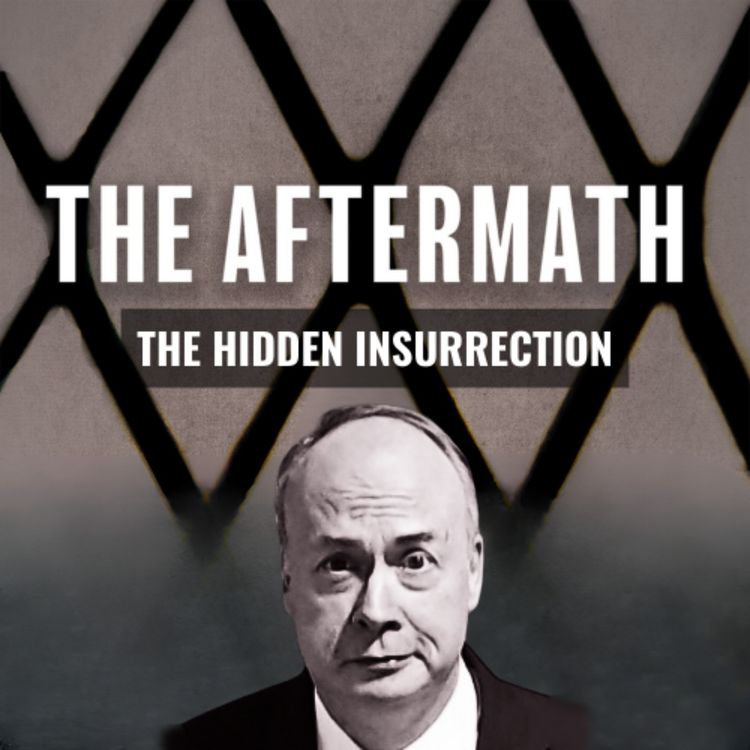
Lawfare Presents: The Aftermath
The Aftermath S2E4 - The Hidden Insurrection
Season 5, Ep. 4
•
It’s December 2020. Donald Trump continues to deny that he has lost the election. He and his inner circle are working feverishly to try to overturn it while Trump is getting more and more irate. Then, on Dec. 21, he meets a man named Jeffrey Clark. Suddenly, the full might of the Justice Department is within reach. And he plans to use it.
More episodes
View all episodes

Trailer
02:52|On April 18th 2019, The Justice Department released the redacted Mueller Report to the public. The 448 page document details a story that has captured America’s attention. From Russian plots to interfere in our election to constitutional questions of executive power, the Mueller Report is potentially one of the most important and consequential documents of our time. But there’s a problem: Very few people have read it.There is still so much confusion about the Report. What it says, who it implicates, and what it means for our country. At Lawfare, we are distilling the report into a multi part audio narrative series, telling you the story of what is in this document, the story Mueller wants you to understand.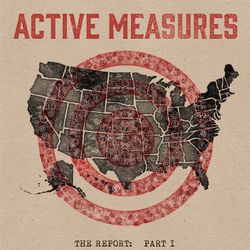
1. The Report Part I: Active Measures
39:00||Season 1, Ep. 1It is 2014 in St. Petersburg, Russia. In the heart of the city, a small nondescript office building sits beside the Bolshaya Nevka River. Inside, workers stare at computer screens open to Facebook and Twitter, furiously typing. Their task: Sow discord, disinformation, and doubt. Their target: The United States of America. Through fake social media accounts and armies of bots, they are flooding online media with disinformation. This is a Troll Farm. It’s name: The Internet Research Agency.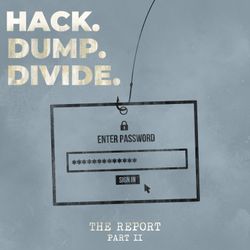
2. The Report Part II: Hack. Dump. Divide.
50:50||Season 1, Ep. 2It's March 2016. John Podesta is sitting at his computer. He opens an email. Something’s wrong with his password, it says. It looks a little fishy, but IT says it is legit. And so he clicks. He follows the prompt. inputs his old password, resets a new one. And just like that hackers from a Russian military intelligence unit are in. It barely takes a minute, one click and a few keystrokes and there is no going back.This is Episode 2 of The Report: Hack. Dump. Divide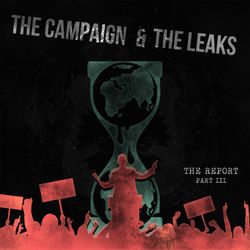
3. The Report Part III: The Campaign & The Leaks
44:43||Season 1, Ep. 3It’s July 27, 2016. Donald Trump has just given a press conference during which he suggests that Russia hack Hillary Clinton and release the 30,000 allegedly missing emails from her private email server. The Russians, unbeknownst to people in the United States, appear to take the request seriously and hour later begin cyber-attacking Clinton’s private office for the first time.Privately, Trump has instructions for his top aides: He repeatedly asks individuals affiliated with his Campaign to find the deleted Clinton emails too. His national security adviser, Michael Flynn, says Trump made this request repeatedly. And so Flynn acts on it, teaming up with a shadowy Republican political operative in an ill-fated attempt to track down a trove of Clinton emails from Russian hackers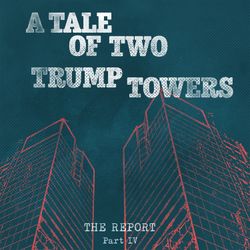
4. The Report Part IV: A Tale of Two Trump Towers
57:37||Season 1, Ep. 4As the Russians were engaged in operations to hack and dump emails, the Trump campaign and its associates were in communication with Wikileaks about the distribution of stolen materials. But that’s far from the whole story of the Trump campaign’s connections to Russia during the 2016 election. As Special Counsel Robert Mueller began to piece together the rest of that story, his investigation came to focus on two Trump Towers.The first is Trump Tower Moscow. Beginning all the way back in 2013 and through the spring of 2016, the Trump organization is pursuing a project to build a skyscraper in Russia. For a long time, the plans for Trump Tower Moscow had gone nowhere. But when Donald Trump announces he is running for president, things start to get interesting.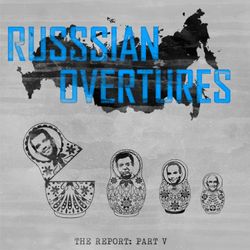
5. The Report Part V: Russian Overtures
01:07:17||Season 1, Ep. 5It’s the morning of April 25, 2016. At a hotel in London, a Maltese professor meets with a young foreign policy adviser to the Trump campaign. The two have been in touch over the past few weeks; the professor has been helping the young man connect with Russian officials. Now, over breakfast, the professor lets him in on a secret. On a recent trip to Moscow, high-level government officials told him that the Russians have “dirt” on Trump’s opponent. What was the “dirt” in question? “Emails,” he says. They have “have thousands of emails.”
6. Part VI: Back Channels
01:01:55||Season 1, Ep. 6It’s December 29, 2016. The Obama administration announces that it’s imposing sanctions on Russia, as punishment for election interference. Michael Flynn has been tapped to become Trump’s national security advisor when the new administration takes office in January, but it’s still the transition period. Flynn is taking a few days vacation at the beach, when he sees the news. He grabs his phone and texts the transition team at Mar a Lago. He writes “Tit for tat with Russia not good” and says that the Russian ambassador, Sergey Kislyak is reaching out to him today. Flynn calls Kislyak and asks that Russia not escalate in response to the sanctions. Apparently, it works. The next day, in a surprise move, Putin says that Russia won’t retaliate. Trump tweets, “Great move on delay (by V. Putin). I always knew he was very smart.”
7. Part VII: Charging Decisions
58:00||Season 1, Ep. 7It’s April 18, 2019, Attorney General Bill Barr summons reporters to the Department of Justice in Washington DC. Robert Mueller’s report is about to be released. Before the press and the public finally see the document for themselves, Barr wants a chance to tell his own version of the story it contains. But is the bottom line according to Barr the same as the bottom line according to Robert Mueller? We’ll let you decide.Previous episodes have told the story of the factual findings of the Mueller report—what did investigators figure out about what happened? And what were the questions they couldn’t fully answer? Conducting the investigation is one part of the Special Counsel’s job: collecting evidence and assembling a record. But the investigation actually supports Mueller’s larger responsibility: he must reach a set of legal conclusions about the evidence his team has found. The Special Counsel needs to decide which parts of the story laid out in Volume One of the Report amount to prosecutable crimes.This episode covers those decisions. Where does Mueller decide to bring charges? And when he doesn’t, is that because he thinks nothing improper or possibly criminal occurred? Or is it because he finds that the evidence just isn’t sufficient to prove things beyond a reasonable doubt? Here’s what the Mueller Report says about how the Special Counsel’s office made these decisions.This is The Report: Episode 7: Charging Decisions
BONUS: The Death of Peter Smith
25:54|It’s July 2016. Then-FBI Director James Comey gives a press conference explaining that, while he has recommended that the Justice Department not pursue charges against Hillary Clinton for her mishandling of classified information, Clinton’s conduct was “extremely careless.” Evidence has never surfaced that Clinton’s account was compromised. But a Republican political operative named Peter Smith becomes obsessed with the idea that Russia might have gained access. He spends the next year trying to get ahold of Clinton emails that he thinks Russia has hacked. But he never gets to see what Special Counsel Robert Mueller makes of his efforts—because a year later, he dies by suicide.This is a bonus episode of The Report. We’ve just finished Volume I of our podcast bringing to life Robert Mueller’s report on Russian election interference. In a few weeks, we’ll be back with new episodes on Volume II of Mueller’s report—covering President Trump’s efforts to obstruct the Russia investigation.